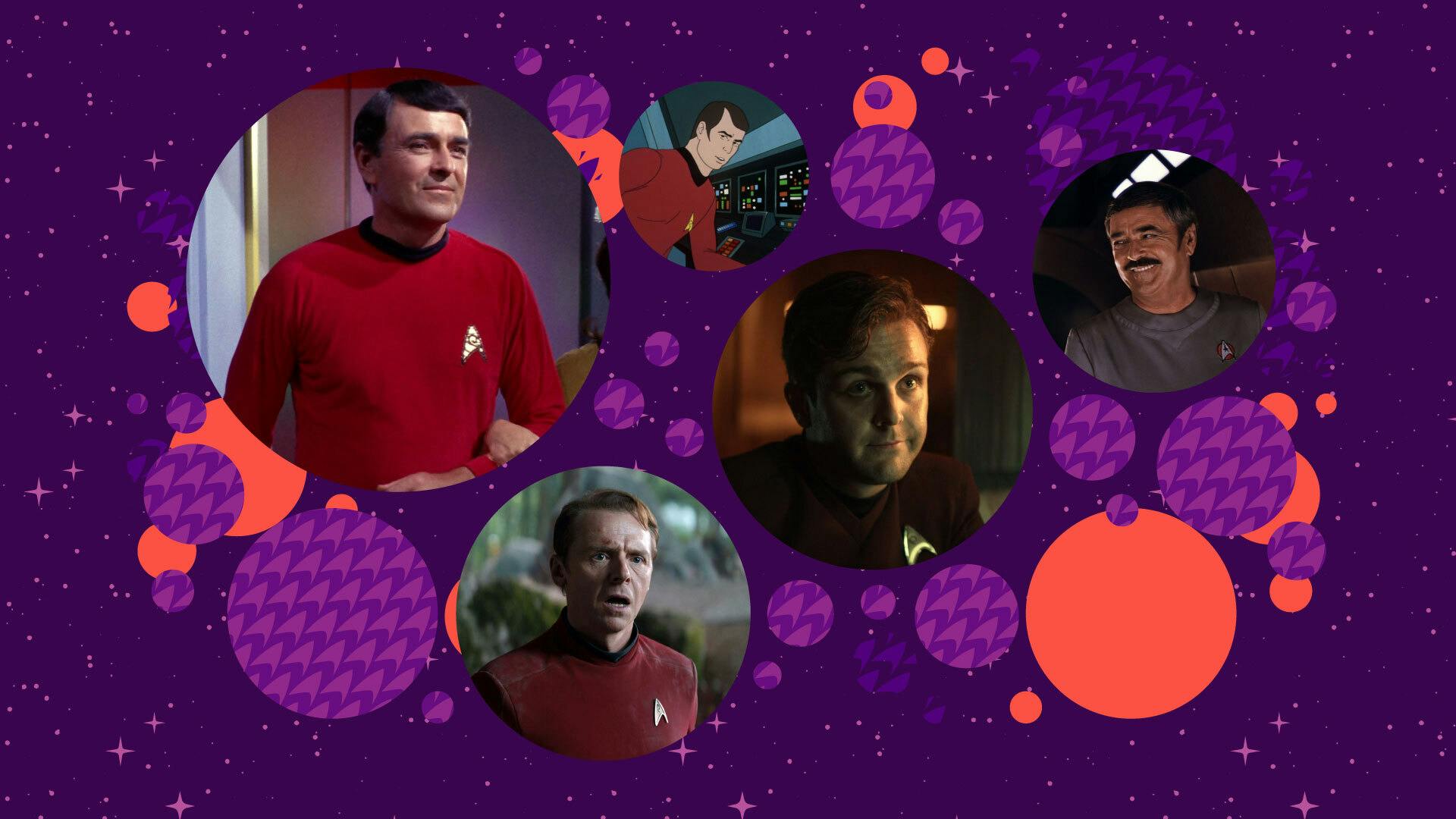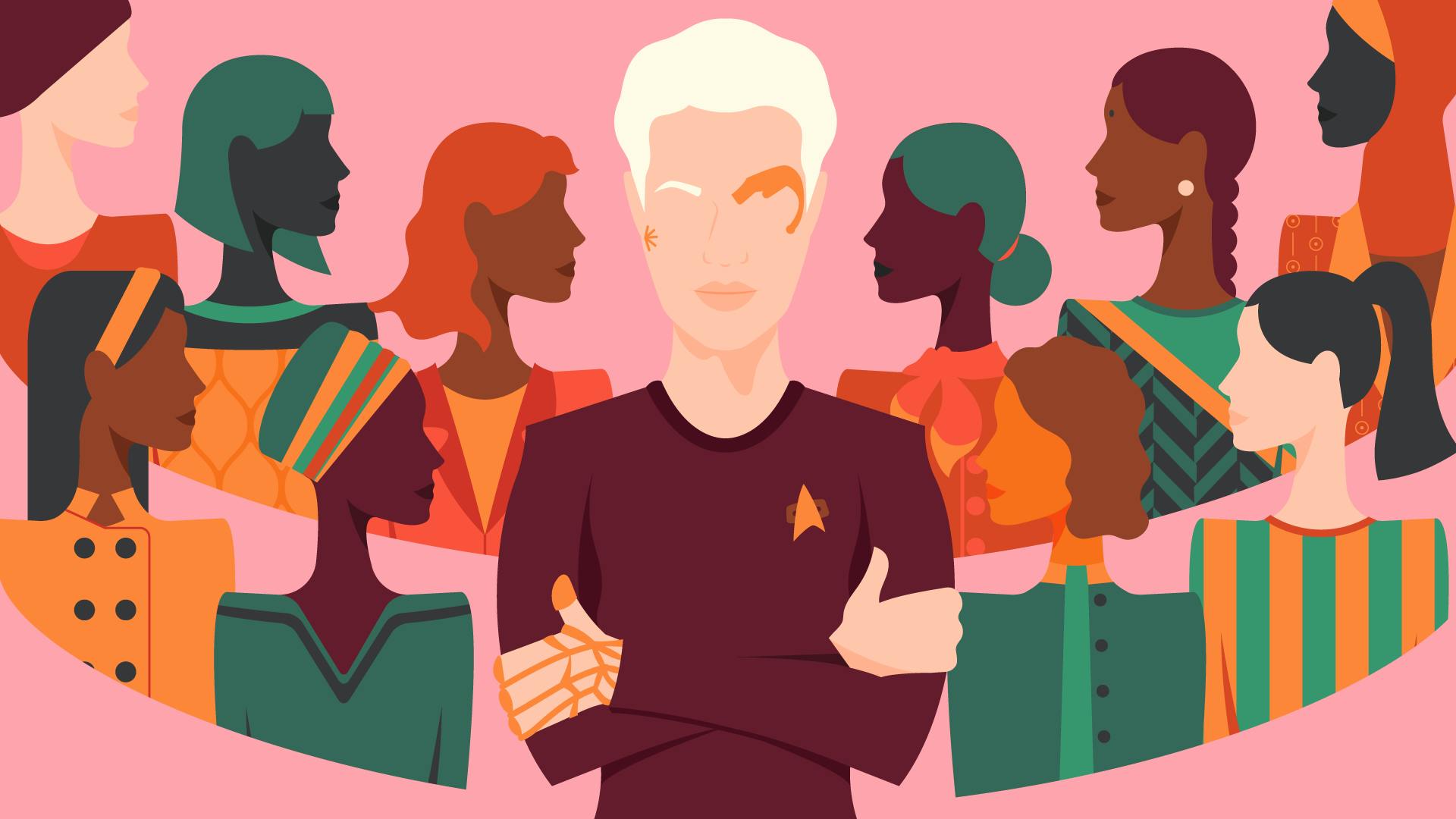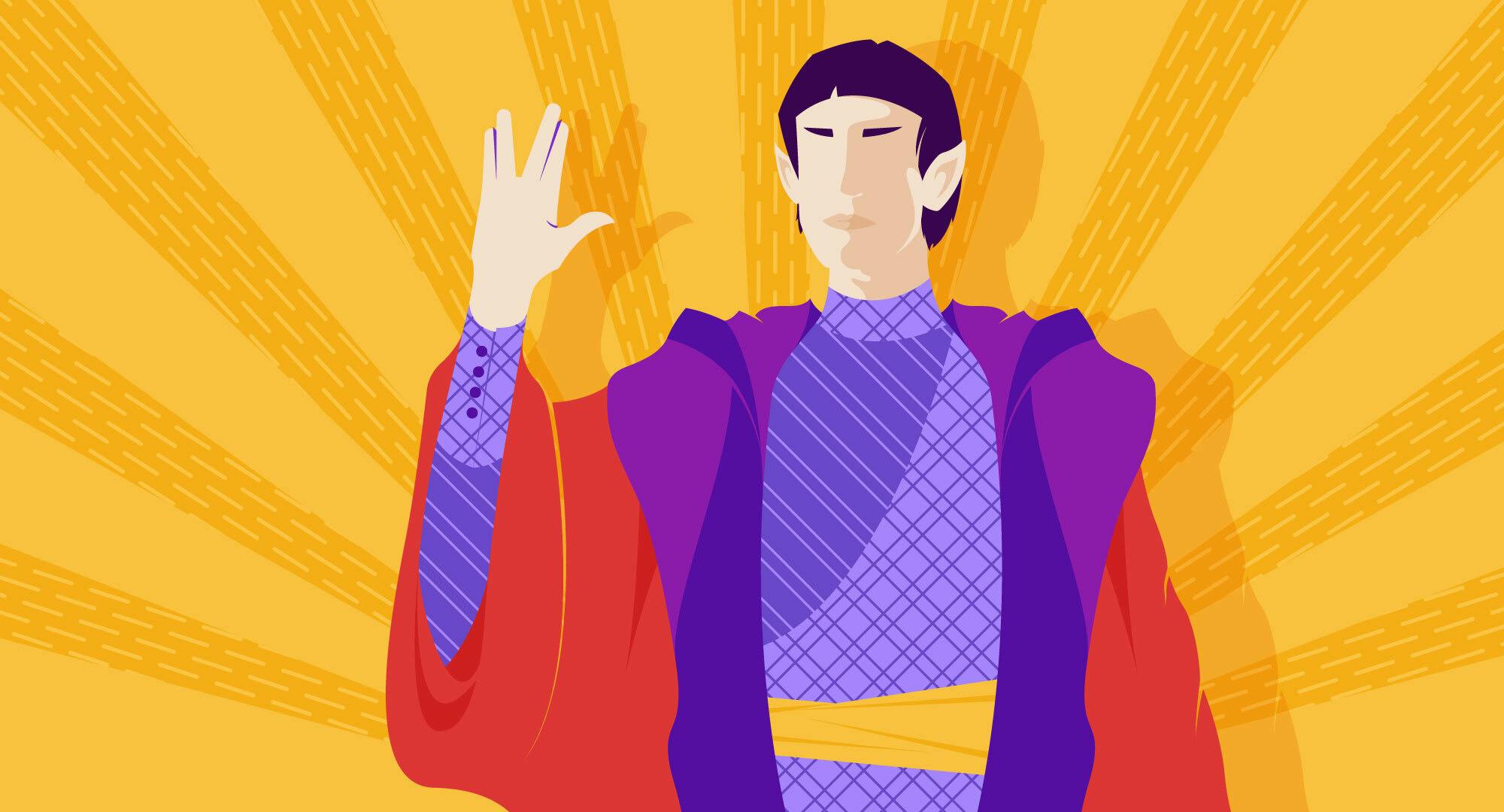Published Jun 12, 2023
In Defense of Captain James T. Kirk
We're going back to the beginning to take a second look at Star Trek's classic captain.
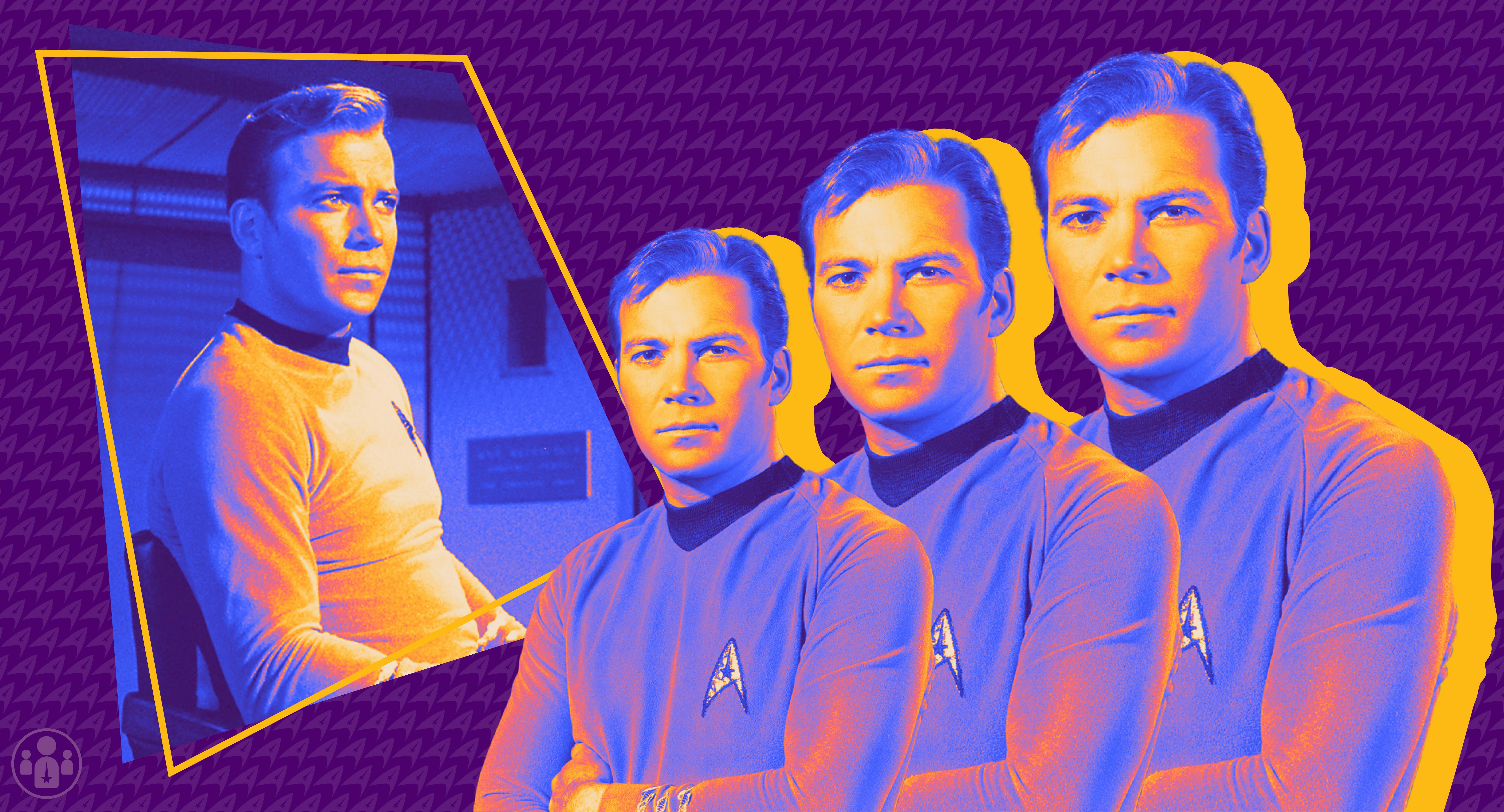
StarTrek.com
While the new Star Trek series are being celebrated (and rightly so) for their inclusion and progressive ideas, this is, as many old-school fans are happy to point out, nothing new. But often the praise for the new shows has come with a side order of derision towards The Original Series and, in particular, its lead character, Captain James T. Kirk. I’m here to tell you that Star Trek’s first captain was a lot more progressive than he gets credit for.
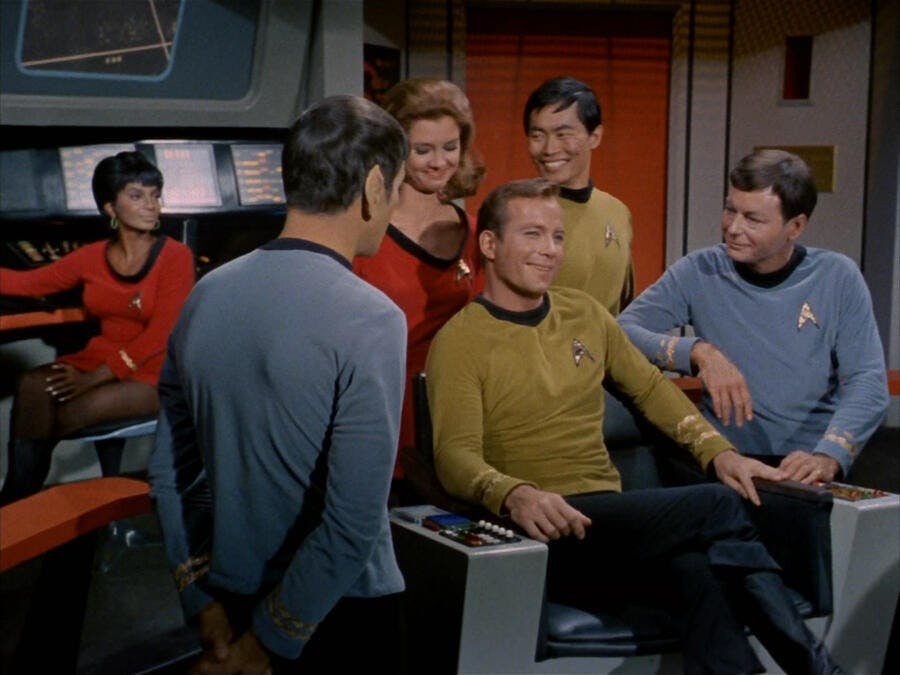
StarTrek.com
Let’s start with some of James T. Kirk’s origin story, for those who only see him as the king of swagger:
- He grew up with horrific tragedy; he lived through a food crisis on Tarsus IV, where Governor Kodos executed 4000 colonists to “save” the rest. Kirk, 13 at the time, was an eyewitness to the massacre.
- He was described by close pal Gary Mitchell as a “stack of books with legs.” Mitchell added that, at Starfleet Academy, “The first thing I ever heard from an upperclassman was, ‘Watch out for Lieutenant Kirk. In his class, you either think or sink.’”
- Also at the Academy, Kirk was relentlessly hazed by a bully named Finnegan.
Is that the guy you think of when you hear “James T. Kirk”?
While Kirk definitely had his fair share of backwards moments — as an adolescent girl, I cringed every time he addressed his entire crew as “gentlemen” — he also proved, over and over again, that he was able to transcend them.
He Didn’t Stand for Bigotry
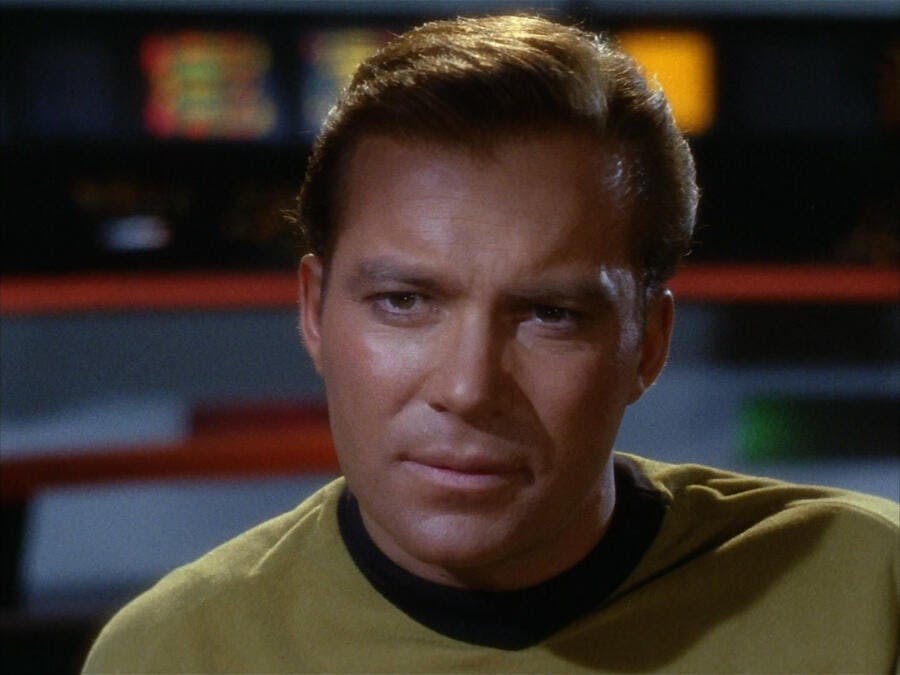
StarTrek.com
A famous line still quoted all over social media happened right in Star Trek’s first season, when the crew saw what Romulans looked like for the very first time. Startled by their striking similarity to Vulcans, navigator Lt. Stiles immediately became suspicious of Mr. Spock. When he suggested they ask Spock to decode Romulan messages, instead of the cryptography team that was already on the case, Kirk put his foot down.
KIRK: I assume you're complimenting Mister Spock on his ability to decode.
STILES: I'm not sure, sir.
KIRK: Well, here's one thing you can be sure of, Mister. Leave any bigotry in your quarters. There's no room for it on the Bridge. Do I make myself clear?
STILES: You do, sir.
He Knew That 'No' Meant 'No'
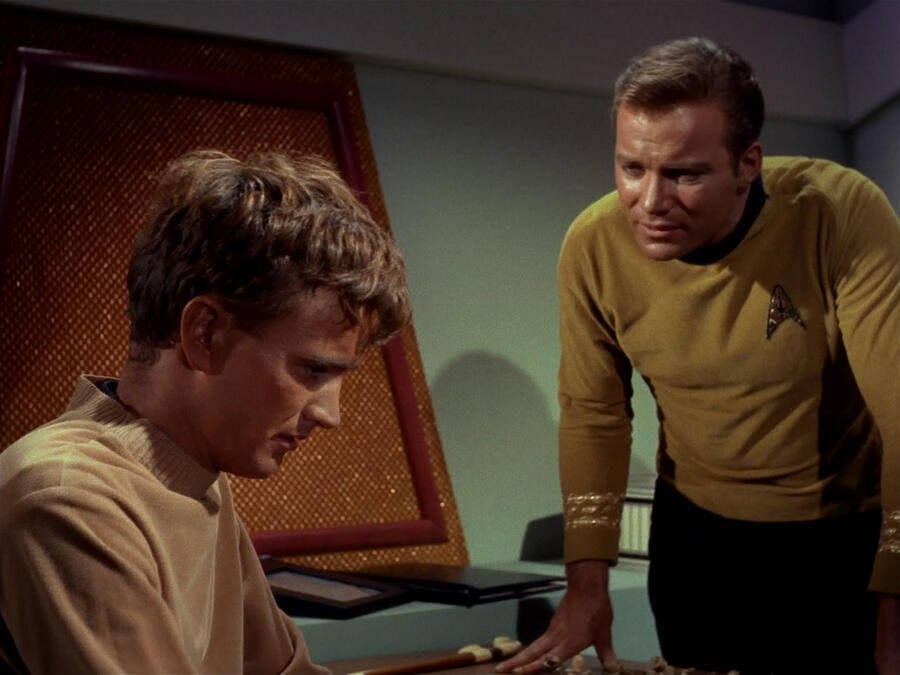
StarTrek.com
One of Star Trek’s earliest episodes, “Charlie X,” was about the discovery of an orphan who’d been given extraordinary powers and was struggling to handle them as he went through a turbulent adolescence and exposure to other humans for the first time. It was left to Kirk to teach him about how to behave around women. Granted, there were some clunky moments like this one, where the message was good, but the delivery was a failure —
“There's no right way to hit a woman.I mean, man to man is one thing,but, er, man and woman, er, it's, er, it's, er.Well it's, er, another thing. Do you understand?”
Charlie didn’t really, and Kirk’s mistake was — as someone who had to act like a parent but wasn’t one yet — that he didn’t see how deeply Charlie was struggling until too late. But when Kirk tells Charlie to stop pursuing Yeoman Janice Rand, he’s 100% clear.
“You go slow. You be gentle.I mean, it's not a one-way street,you know, how you feel and that's all.It's how the girl feels, too.Don't press, Charlie.If the girl feels anything for you at all, you'll know it.”
He’s talking about consent. He hammers the point home with this —
“Charlie, there are a million things in this universeyou can have and there are a million things you can't have.It's no fun facing that, but that's the way things are,” advising the lovesick superteen to,“Hang on tight and survive. Everybody does.”
He Put Himself in His Enemy’s Shoes
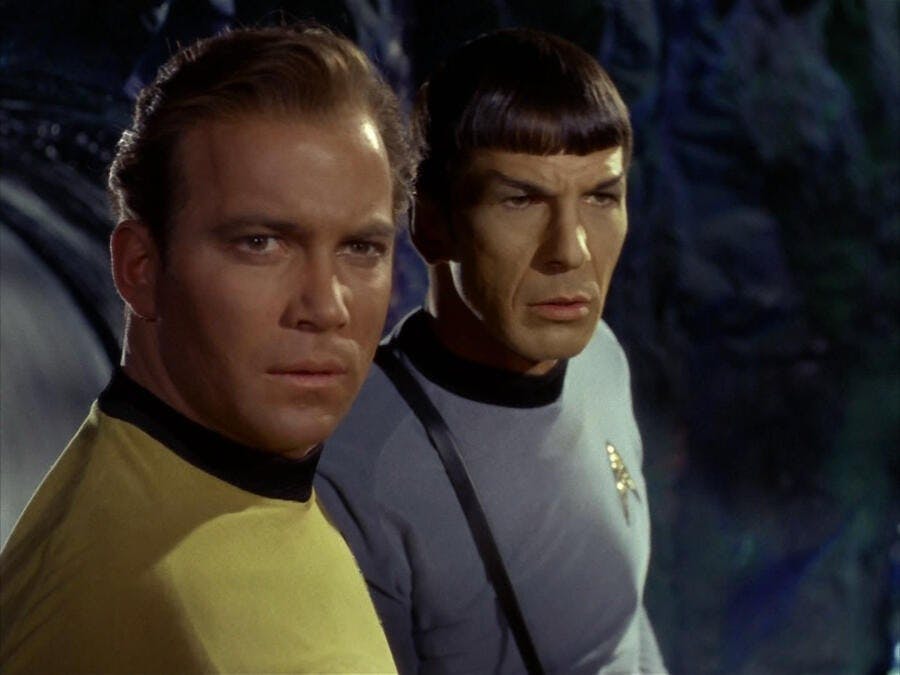
StarTrek.com
Unlike too many of the loudest voices today, Kirk wasn’t a dig-his-heels-in kind of guy; he had the ability to see himself through his enemy’s eyes and change his way of thinking — even when threatened.
In “The Devil in the Dark,” it’s Kirk who discovers that the creature who’s been killing the miners on Janus VI isn’t a marauding murderer. When he comes face-to-face with the creature Spock describes as a “proven killer,” he ignores Spock’s urging to shoot it. While it’s Spock who connects the dots and realizes the miners have been destroying the Horta’s eggs, it’s Kirk who stopped the killing cycle and connected with the creature before anyone else.
Many viewers think of “Arena” as the episode where Kirk builds a gun and fights the Gorn, but what the episode is really about is Kirk listening to the Gorn. When the Gorn captain describes a Federation colony as invaders in Gorn territory, Kirk hears it, loud and clear. As he’s about to win the battle to the death, he stops. “No, I won’t kill you,” he says, “Maybe you thought you were protecting yourself when you attacked the outpost.” (Bonus points to McCoy and Spock, who also consider the Gorn’s perspective even when their captain is threatened.)
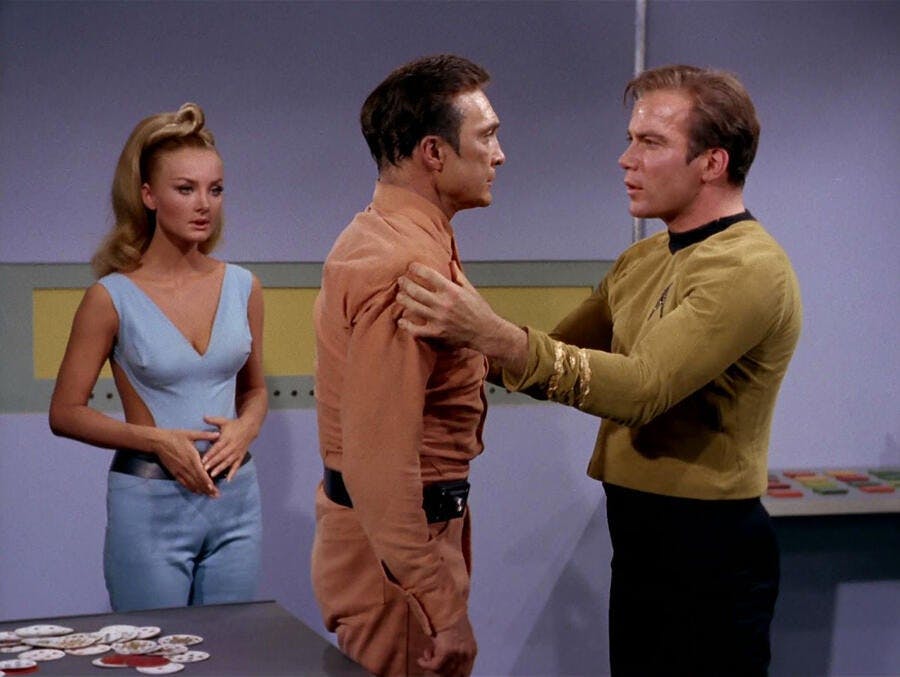
StarTrek.com
In “By Any Other Name,” as soon as Kirk conquers the aliens who’ve taken over his ship and are steering it towards another galaxy, his first offer is one of help. Even as they’re physically wrestling and he knows he’s won, he tells the Kelvan (no relation to Kelvin) commander Rojan to bring the problem to the Federation, who can help the Kelvans find a place to live. Rojan is shocked, “You would really do that? You would extend welcome to invaders?” They stop fighting, and Kirk says, “No. But we would welcome friends.”
And in “Day of the Dove,” when an alien sets Klingons up against the Enterprise crew in an endless battle, Kirk determines they’re being manipulated and makes peace. “What's happening to us? We've been trained to think in other terms than war. We've been trained to fight its causes, if necessary. Then why are we behaving like a group of savages? Look at me. Look at me. Two forces aboard this ship, each of them equally armed. Has a war been staged for us, complete with weapons and ideology and patriotic drum beating? Even — Spock. Even race hatred?”
He Could Always See A Better Future
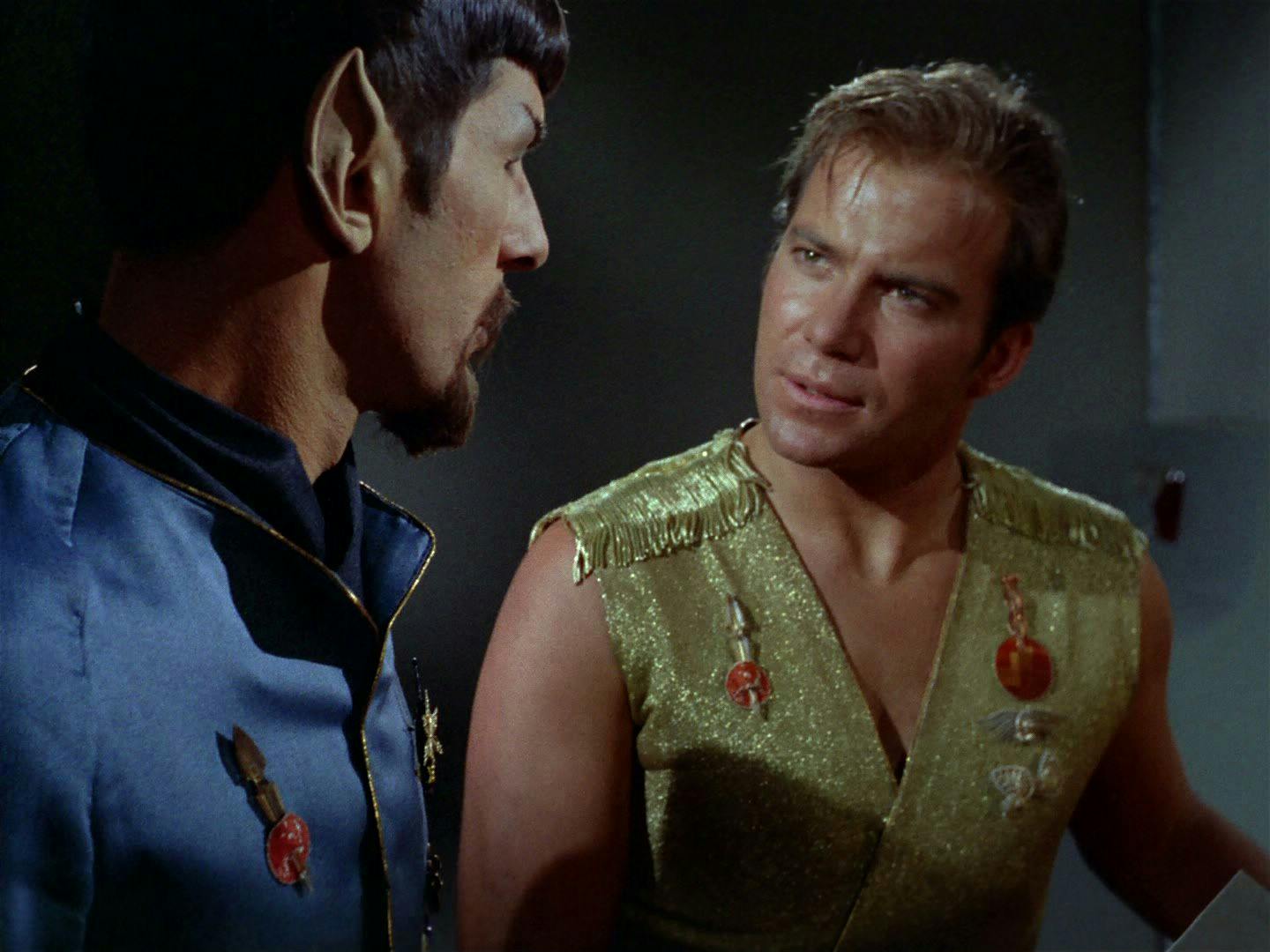
StarTrek.com
In “Mirror, Mirror,” Kirk, Uhura, Scotty, and McCoy are thrown into the Mirror Universe — a savage world where officers are promoted by assassinating their superiors and planets are conquered. When they finally figure out how to get back, Kirk stalls his return. He’s not just racing back to safe home territory; he wants the Mirror Universe to be safer, too.
With two minutes and ten seconds left, he decides it’s time to have a one-to-one with Mirror Spock. He appeals to Spock’s logic, calling him out as illogical for going along with the brutality of the Empire. “If change is inevitable, predictable, beneficial, doesn't logic demand that you be a part of it?” he asks, urging Spock to find a logical reason to spare the Halkans (who are about to be destroyed). We learn many years later, on Star Trek: Deep Space Nine, that his speech worked, and the Empire fell. (It’s not his fault that the Klingon-Cardassian Alliance took over.)
His Soulmate Was the Most Progressive Person of Her Time
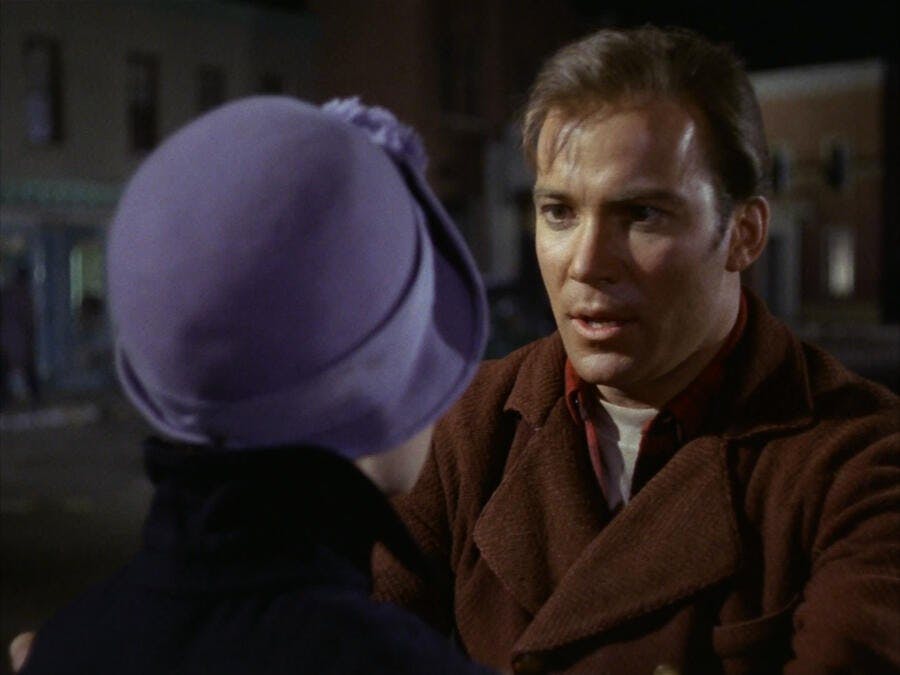
StarTrek.com
In “The City on the Edge of Forever,” Kirk meets Edith Keeler in New York City during the Great Depression. Sure, she’s played by the gorgeous Joan Collins, but he doesn’t fall for her because she’s beautiful or has a delightful accent; he’s immediately hooked by her ideas. She talks about a future with hope and unity to a largely oblivious room, and when another fella tells Kirk, “Not that she's a bad-looking broad, but if she really wanted to help out a fella in need...” Kirk tells him to shut up. Twice. “I want to hear what she has to say,” he says. You can almost hear his heart pounding.
All of Edith and Jim’s conversations as they’re dating are about her views. Her optimism and her belief in a better world are what make him fall for her. When he has to let her die to save Earth’s future, he’s utterly devastated because he knew she was right and could have changed the world, if only she’d been born at a different time. And he loved her.
He Had Humility, and Could Admit When He Was Wrong
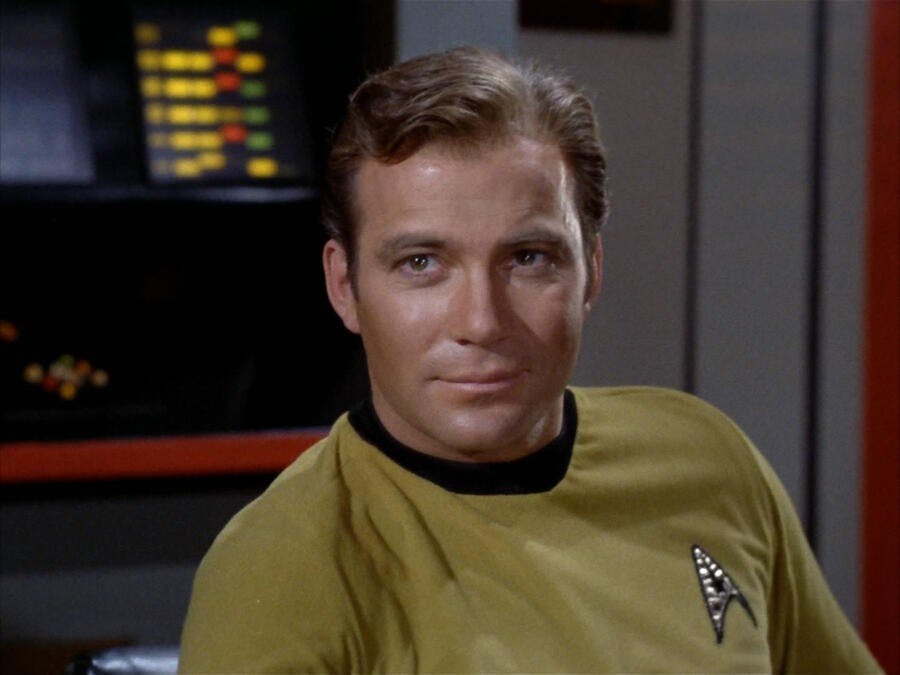
StarTrek.com
Humility is sorely missing from today’s political and social conversations. We’re all sticking our heels in the mud, refusing to acknowledge that anyone who thinks differently from us might have any validity, and refusing to engage in conversation.
And yet Kirk, who’s often described as a macho guy who always thinks he’s right, was able to recognize when he wasn’t — after behaving like a fool for most of the episode. The Organians repeatedly tell him they don’t need his help stopping a Klingon invasion of their planet, but he doesn’t listen at first; he knows what’s what and they don’t, and if they’re not going to defend themselves, he’ll do it for them. The Organians finally put a stop to the fighting, then tell Kirk, Spock, and the Klingons to leave; they’ve put up with their shenanigans long enough. Kirk and Kor (the Klingon commander) are outraged... at first. Later, on the ship, he sings a different song.
“I'm embarrassed.I was furious with the Organiansfor stopping a war I didn't want.We think of ourselvesas the most powerful beings in the universe.It's unsettling to discover that we're wrong.”
When was the last time you heard someone say something like that — or said it yourself?
He Overcame His Own Prejudice
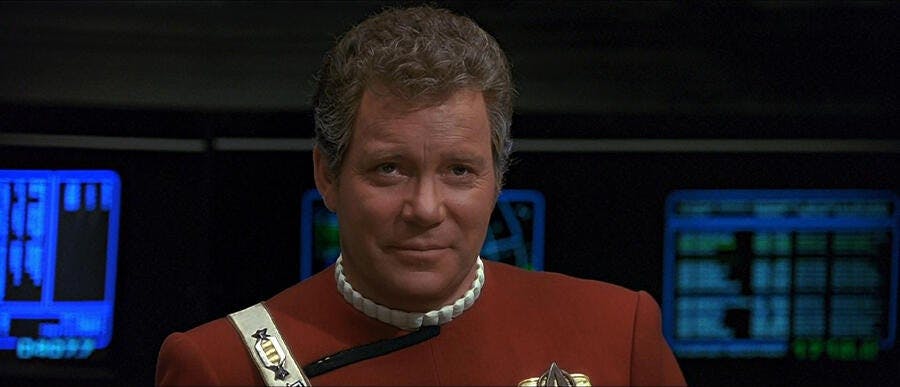
StarTrek.com
In Star Trek III: The Search for Spock, Kirk’s son David Marcus was killed by Klingons, and it hardened Kirk’s heart. He hated Klingons for it and was furious when Spock set him up (three movies later with Star Trek VI: The Undiscovered Country) as the escort and emissary for Klingon Chancellor Gorkon.
After Gorkon has been killed, and McCoy and Kirk imprisoned for the crime and then rescued, Kirk confesses, “Gorkon had to die before I understood how prejudiced I was,” and admits that, “people can be frightened of change.”
“Some people think the future means the end of history,” he tells the assembly after saving the Federation President and the Chancellor’s daughter. “But we haven't run out of history just yet.” The message is as relevant now as it was then, if not more so.
So Let’s Boldly Go… As We Always Did
So, next time you compare our new heroes to our old ones, take a closer look because Kirk and his crew were fighting the good fight long before they knew we’d still be talking about them 56 years later. They learned, they grew, and they set the stage for everything that came after with messages of equality, peace, and not just a better future, but a better humanity.
This article was originally published on June 13, 2022.
